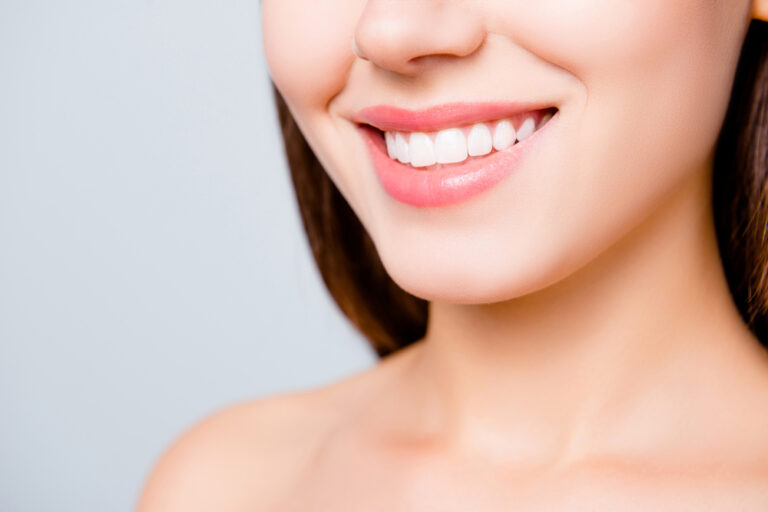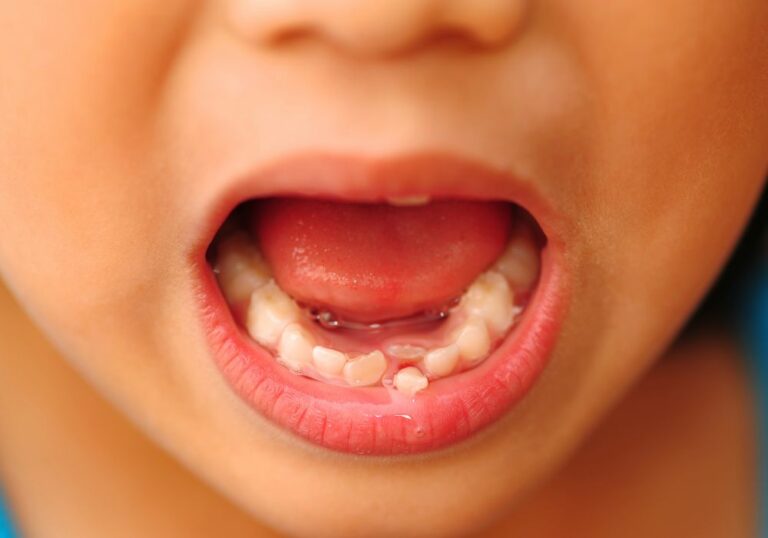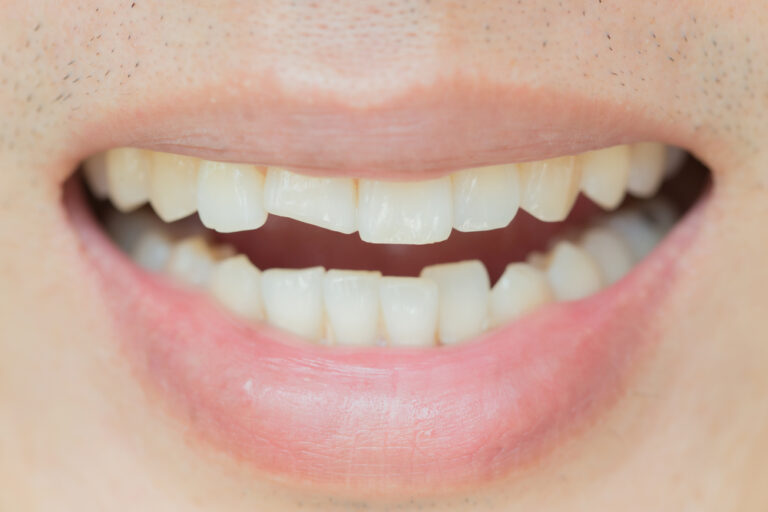Do you know that up to 85% of pets experience dental problems at some point? Some will get dental problems by the time they hit three years. So, if you don’t want your dog to be part of this statistic, you should take care of their oral health.
Unfortunately, caring for your dog’s oral health isn’t as easy as it looks. Most dogs will fight or resist when you attempt to brush their teeth. So, how do you get it done? Well, this guide should offer some insights on maintaining dog dental hygiene.
Ways To Keep Your Dog’s Oral Health
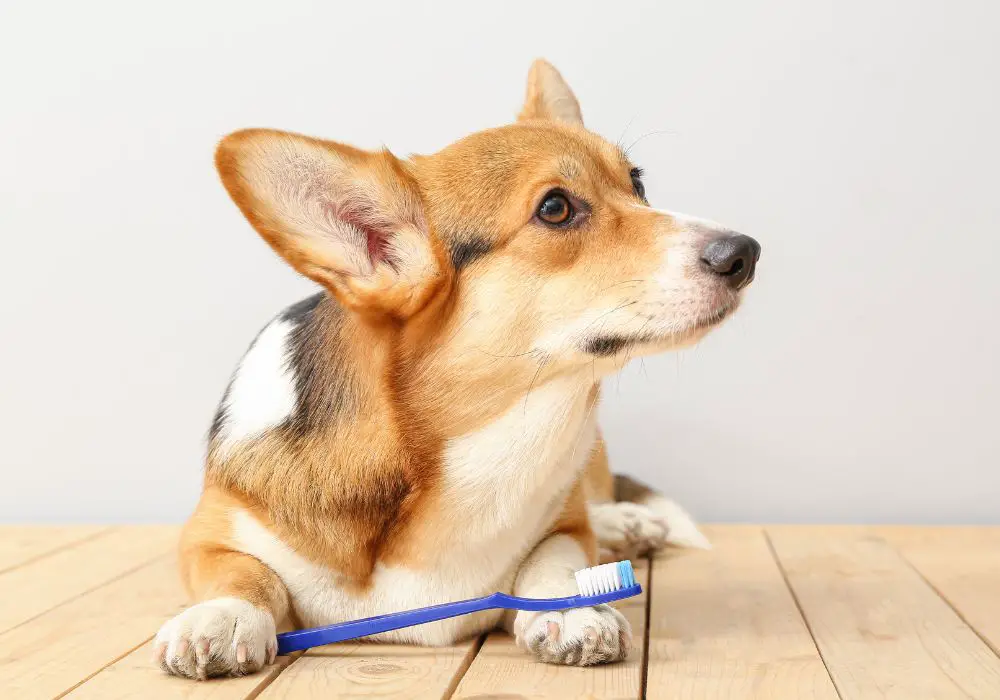
Brush Your Dog’s Teeth
Brushing your dog’s teeth can be a daunting task for most people. Many dogs will obviously resist any attempts to brush their teeth, but that doesn’t mean you should give up. The trick is introducing your dog to brushing at an early age. You can start when they are a puppy, and it will be easier. All in all, you can still teach an old dog new tricks.
As you’d expect, brushing your dog’s teeth requires special tools. You’ll need a dog-specific toothpaste and a toothbrush designed for dogs. The toothbrush should have soft bristles, an angled handle, and multiple heads.
Also, try to purchase a toothpaste whose flavor appeals to your dog. The flavor may be chicken, beef, peanut butter, or other options. You should try various combinations to establish what your dog or pups like best. Once you have that sorted, you can create a regular cleaning schedule for your furry friend.
Try Dog Dental Chews
Brushing your dog’s teeth isn’t the only way to improve oral health. You must also introduce your dog or puppy to dental chews and treats. Dental chews are very effective when it comes to scraping off leftover food from a dog’s teeth. They’ll even help remove odor-causing bacteria from the dog’s teeth and gums.
The best chew toys are made of plastic, rawhide, nylon, or rubber. It’s up to you to choose a chew toy your dog enjoys playing with. Alternatively, you can try different chew toys to keep your pup or dog interested.
Remember that dental treats and chews shouldn’t replace the teeth cleaning schedule. So, don’t fail to brush your dog’s teeth, thinking that the dental chews will get the job done.
When purchasing chew toys and treats, look for those marked with the Veterinary Oral Health Council (VOHC) seal. Your vet can help with some recommendations. Don’t purchase any random dog treats because some are known to harm your dog’s teeth and gums.
Professional Veterinarian Cleanings
Just like humans, dogs need regular professional dental cleanings. These professional cleanings are meant to get rid of plaque and tartar buildup. You see, a toothbrush can’t reach all the nooks and crannies. Therefore, your dog will have some nasty plaque or tartar stuck in between the teeth and under the gum line.
Luckily, a veterinarian can help clean any plaque and tartar buildup. You should at least schedule these professional veterinarian cleanings twice a year.
The good thing about scheduling these cleanings is that the vet gets to do a dental examination. The vet can take X-rays to examine the roots and jaw bone. Besides, the vet should detect and treat any dental problems during these teeth cleaning appointments.
Provide The Right Food
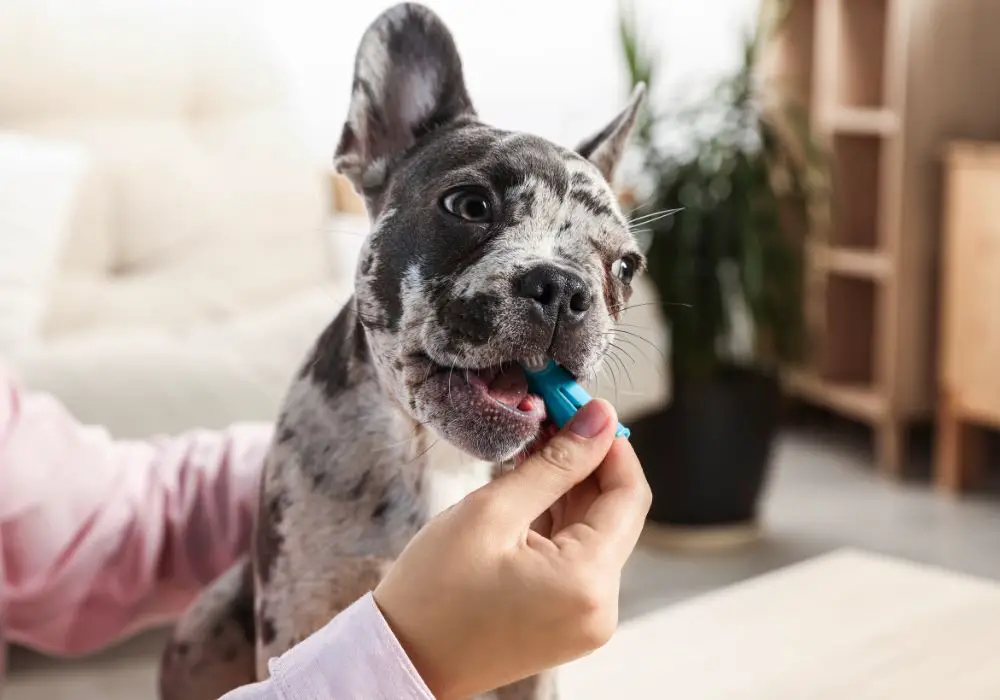
Taking care of your dog’s oral hygiene is one thing, but you must still ensure the teeth are strong. That said, you must provide the right diet. In any case, your dog’s dental health starts with the diet. Here are the foods that can help boost your dog’s oral health:
- Raw Animal Bones
If you aren’t giving your dogs raw animal bones, you are getting it wrong. So, instead of constantly feeding your pup or dog commercial food, try to switch things up by giving them some raw, meaty bones.
Most dogs should enjoy chewing on raw, meaty bones. Besides, the bones should help clean the teeth and gums as well. Your dog actively chewing on the raw bones should strengthen the teeth and jaw.
Avoid small, thin, long bones as they can damage the teeth. Always go for large-shaped bones such as knucklebones or marrow bones.
- Yogurt or Kefir
Yogurt and kefir contain probiotics that are crucial for your dog’s gut and oral health. Probiotics with multiple bacteria strains can form colonies to help create a healthy biofilm in the mouth.
The beneficial bacteria should help keep harmful bacteria at bay. Once you start administering probiotics, your dog won’t have to deal with periodontal disease or bad breath.
- Fruits & Vegetables
Allowing your dog to snack on fruits and vegetables shouldn’t hurt. In any case, fruits and veggies contain important antioxidants that help reduce chronic oxidative stress. Your dog will have healthy periodontal tissues if you can balance antioxidants and oxidative stress well.
Inspect Your Dog’s Mouth Regularly
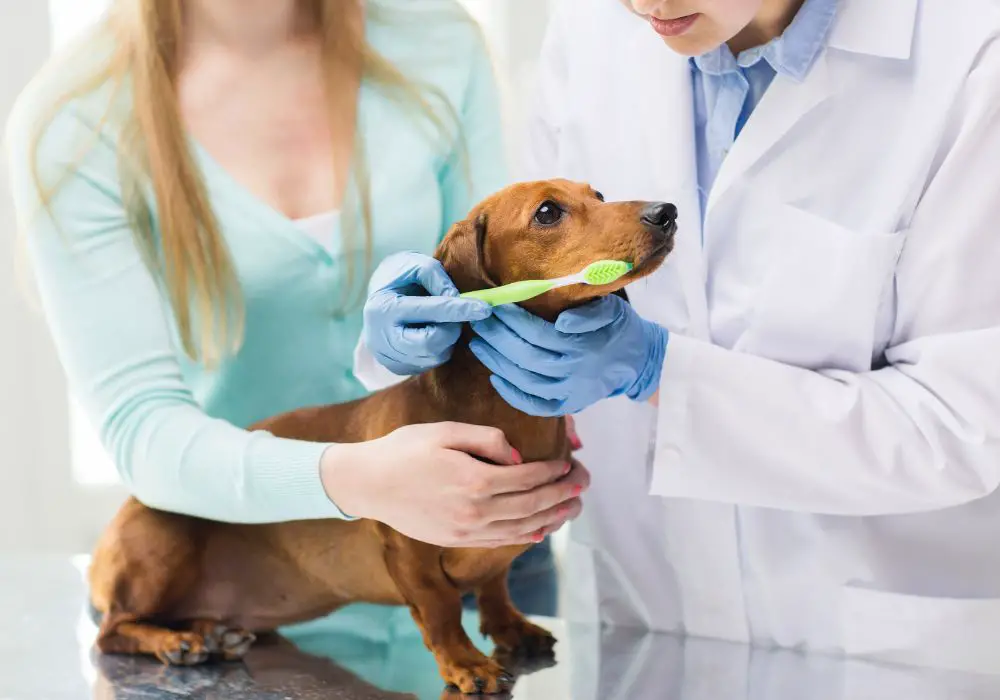
Dogs can quickly develop dental problems without their owners knowing. So, it’s good to check your dog’s mouth every once in a while. You can check if the teeth and the gums are okay at least every month. Look for any inconsistencies or inflammation in the dog’s mouth to know if it has dental problems.
A visual inspection should help identify problems. However, you should ensure you have gloves on whenever you touch the dog’s gums or teeth.
Any inconsistency should prompt you to visit the vet for a proper diagnosis. Dental problems are easier to treat when they are diagnosed at an early stage.
Avoid Certain Foods
Sugary foods have never been on the teeth. These foods will affect your dog’s teeth in the same way they affect human teeth. So, you must reduce the sugary treats you give your pups or dogs.
Wheat, kibble, treats with fillers, rice or potato-based dental sticks, and leftovers are among the worst foods for your dog’s teeth. So, avoid them at all costs!
Summary
Oral health is crucial if you want your dog to have a quality life. So, you must follow the tips we’ve highlighted in this post if you wish to improve your dog’s oral health. If you heed the advice, you won’t have to fret about periodontal disease, missing teeth, tooth decay, bad breath, and other dental diseases.

